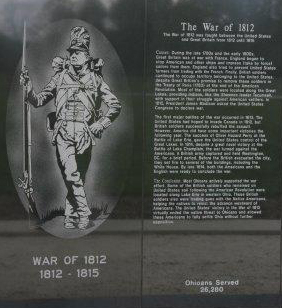
WAR OF 1812
1812-1815
The War Of 1812 was fought between The United States and Great Britain
Causes: During the late 1700s and the early 1800s, Great Britain was at war with France. England began to stop American and other ships and impress (take by force) sailors from them. England also tried to prevent United States farmers from trading with the French. Finally, British soldiers continued to occupy territories belong to The United States despite Great Britainís promise to remove these soldiers in The Treaty Of Paris (1783), at the end of The American Revolution. Most of the soldiers were located along The Great Lakes, providing Indians, like the Shawnee leader Tecumseh, with support in their struggle against American settlers. In 1812, President James Madison asked The United States Congress to declare war.
The first major battle of the war occurred in 1813. The United States had hoped to invade Canada in 1812, but British soldiers successfully rebuffed the assault. However, the Americans did have some important victories the following year. The success of Oliver Hazard Perry at The Battle Of Lake Erie gave The United States control of The Great Lakes. In 1814, despite a great naval victory at The Battle Of Lake Champlain, the war turned against the Americans. A British army captured and held Washington D. C. for a brief period. Before The British evacuated the city they set fire to several of the buildings, including The White House. By late 1814, both The Americans and The English were ready to conclude the war.
The Conclusion: Most Ohioans actively supported the war effort. Some of The British soldiers who remained on United States soil following The American Revolution were located along Lake Erie in western Ohio. These British soldiers also were trading guns with The Native Americans, helping the natives to resist the advance westward of Americans. The United Statesí victory in The War Of 1812 virtually ended the native threat to Ohioans and allowed these Americans to fully settle Ohio without further opposition.
Ohioans Served: 26,280